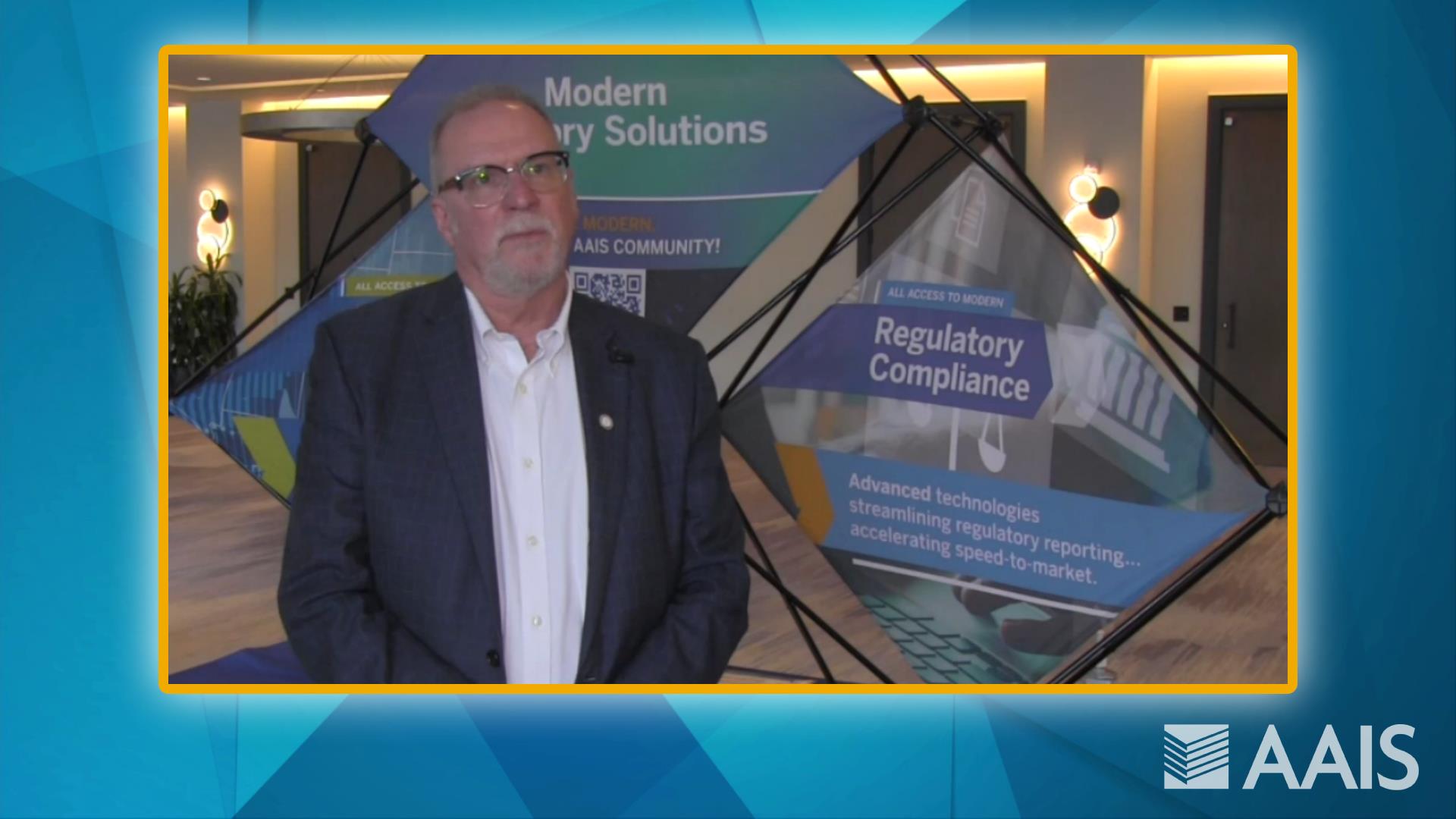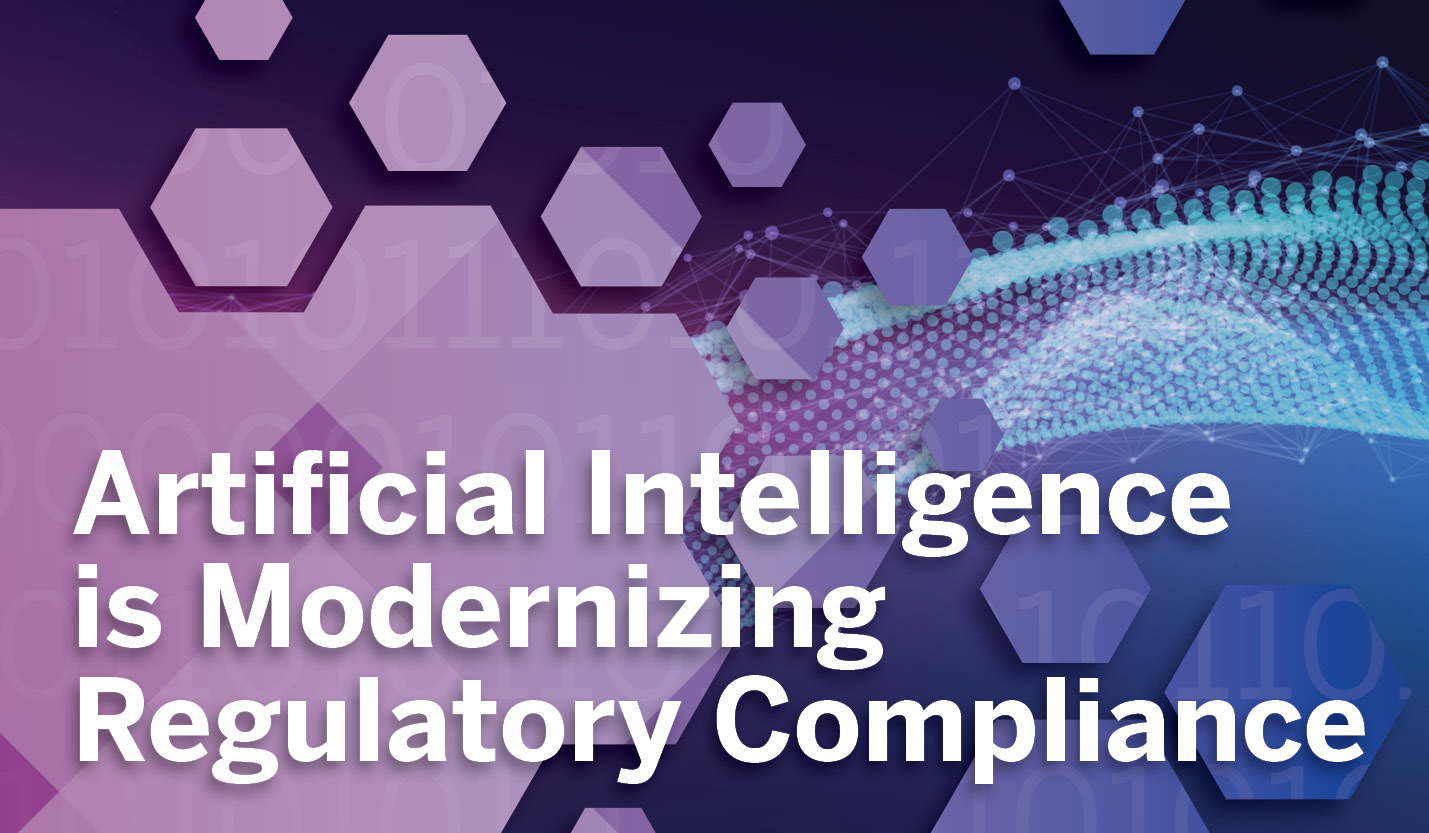For this Regulatory Brief, AAIS sat down with George Bradner, Assistant Deputy Commissioner of the Connecticut Insurance Department, to discuss the use of modern technologies to streamline processes for more efficient filings moving into 2023.
Machine Learning/AI (2)
Connecticut Insurance Department Leveraging Artificial Intelligence to Capture Institutional Knowledge
Jan 4, 2023 / by AAIS posted in Insurance, Machine Learning/AI, Regulatory/Compliance, NAIC, Artificial Intelligence, Insurance Advisory, Regulatory Reporting, Machine Learning, Statistical Reporting
Leading State Regulators Talk Blockchain, AI, and Modernizing Regulatory Reporting
Feb 7, 2022 / by AAIS posted in openIDL, Technology, Machine Learning/AI, Issues & Trends, Events, Regulatory/Compliance, Blockchain, Legislation & Regulation, AAIS Pulse, AAIS Event Archives, Data/Tech, GLC, Machine Learning
The AAIS Pulse newsmagazine recently featured discussions with Mississippi Insurance Commissioner Mike Chaney and Connecticut Insurance Department Asst. Deputy Commissioner, Property & Casualty Division, George Bradner. They sat down with AAIS VP of Government Affairs, Legal, and Compliance, Robin Westcott, to cover a wide array of topics including data collection, data management, openIDL and its benefits, machine learning, and much more.
Artificial Intelligence is Modernizing Regulatory Compliance
Jan 18, 2022 / by Robin Westcott posted in openIDL, Community, Machine Learning/AI, Issues & Trends, Data & Technology, Tech News, Regulatory/Compliance, Legislation & Regulation, AAIS News & Views, AAIS Insights, Data/Tech, Connecticut
Risks are continually evolving and emerging, requiring updates to insurance policies in order for carriers to keep pace with market need. Whether you’re a regulator or an underwriter, reviewing new policy language in a timely fashion can be a challenge, and can negatively impact speed-to-market.
Open Source Benefits are Coming to Insurance
Dec 6, 2021 / by Joan Zerkovich posted in openIDL, Machine Learning/AI, Issues & Trends, Data & Technology, Data Management/Distributed Ledger, Robotics/Drones, Open Source, Tech News, IoT, Telematics, Auto, Modeling/Predictive Analytics, AAIS News & Views, AAIS Insights, Data/Tech, Linux Foundation
In 2002, Amazon eliminated millions of dollars from its technology costs by switching to the Linux operating system, an open source technology platform from the Linux Foundation. In a filing with the Securities and Exchange Commission, Amazon stated it was able to cut technology expenses by about 25%, from $71 million to $54 million, primarily through “migration to a Linux-based technology platform that utilizes a less-costly technology infrastructure, as well as general price reductions for data and telecommunication services due to market overcapacity[1]. Amazon continues its open source technology strategy today, as do thousands of other companies. Today, 96.3% of the world's top one million servers run on Linux[2].
AAIS, Berkley Re & Munich Re Experts Talk Cyber, Fire & Flood Risk
Oct 20, 2021 / by AAIS posted in Machine Learning/AI, Issues & Trends, Data & Technology, AAIS Events, Events, Tech News, Homeowners, New/Emerging Risks, Climate Change, P&C Insurers, Fire, AAIS Insights, AAIS Pulse, AAIS Event Archives, Data/Tech, Berkley Re, Insurance Line of Business, munich re, flood
The AAIS Pulse newsmagazine recently featured a discussion with experts from Munich Re, Berkley Re Solutions, and AAIS hosted by AAIS Vice President of Products John Kadous on the emerging risks affecting policyholders in the homeowners market. The focus was on the evolving threats around cyber, fire and flood and how they’re being impacted by climate change, technology and more.
Maryland Insurance Commissioner Talks Talent, E-Commerce, Insurtech & More
Oct 18, 2021 / by AAIS posted in Machine Learning/AI, Issues & Trends, Data & Technology, AAIS Events, Events, Tech News, Insurtech, Regulatory/Compliance, New/Emerging Risks, Working in Insurance, Legislation & Regulation, AAIS Insights, AAIS Pulse, AAIS Event Archives, Data/Tech, NAIC, talent
The AAIS Pulse newsmagazine recently featured a discussion between Maryland Insurance Commissioner Kathleen Birrane and AAIS VP of Government, Legal and Compliance Robin Westcott. They covered a range of topics, from careers in insurance and climate change to National Association of Insurance Commissioner Working Groups, technology, insurtechs and much more.
Examining the Evolution of Blockchain Applications in Insurance
Aug 13, 2021 / by Truman Esmond posted in openIDL, Insurance, Machine Learning/AI, Issues & Trends, Data & Technology, Data Management/Distributed Ledger, Tech News, Regulatory/Compliance, Blockchain, Data, Modeling/Predictive Analytics, Data/Tech, AAIS Views, Regulatory Reporting
Blockchain started as a popular buzzword among techies but has since permeated across industries. In insurance, its potential is being realized as game changing. Truman Esmond, AAIS Vice President of Membership and Solutions, spoke at a recent webinar hosted by The Institutes Griffith Insurance Education Foundation on how AAIS is utilizing blockchain to support industry.
AI and Modern Compliance
Jan 9, 2021 / by AAIS posted in Community, Technology, Machine Learning/AI, Issues & Trends, Data & Technology, Insurtech, Regulatory/Compliance, Insurance Operations, Innovation, AAIS Insights, AAIS Pulse, Executive, NAIC, Regulation, Compliance, Locke Lorde, AI, AAIS Views
In August of 2020, the NAIC adopted five guiding principles for artificial intelligence (AI), based on the Organization for Economic Cooperation and Development’s AI Principles which have been adopted by 42 countries across the globe. These five principles include: Fair and Ethical Accountability, Compliance, transparency, security, safety, and robustness of outputs.
Adding AI to the Underwriting Equation
Aug 4, 2020 / by AAIS posted in Community, Technology, Machine Learning/AI, Issues & Trends, Data & Technology, Events, COVID-19, Regulatory/Compliance, Insurance Operations, AAIS Webinar Series, Underwriting, Regulation, Compliance, Business Interruption, AI, AAIS Views, CONVR
In a special edition of the AAIS Webinar Series, CONVR VP Sales and Marketing Phil Alampi presented on the topic of "Artificial Intelligence: Creating Super Underwriters." Mr. Alampi discussed the growing impacts COVID-19 has had on insurers. With more than 75% of carriers seeing increases in business interruption claims, the demand for coverage is expectedly surging. This growing challenge has a positive side, however, for the impacts of COVID-19 have expedited the need for the industry to improve its ability to crunch data better and more efficiently.











